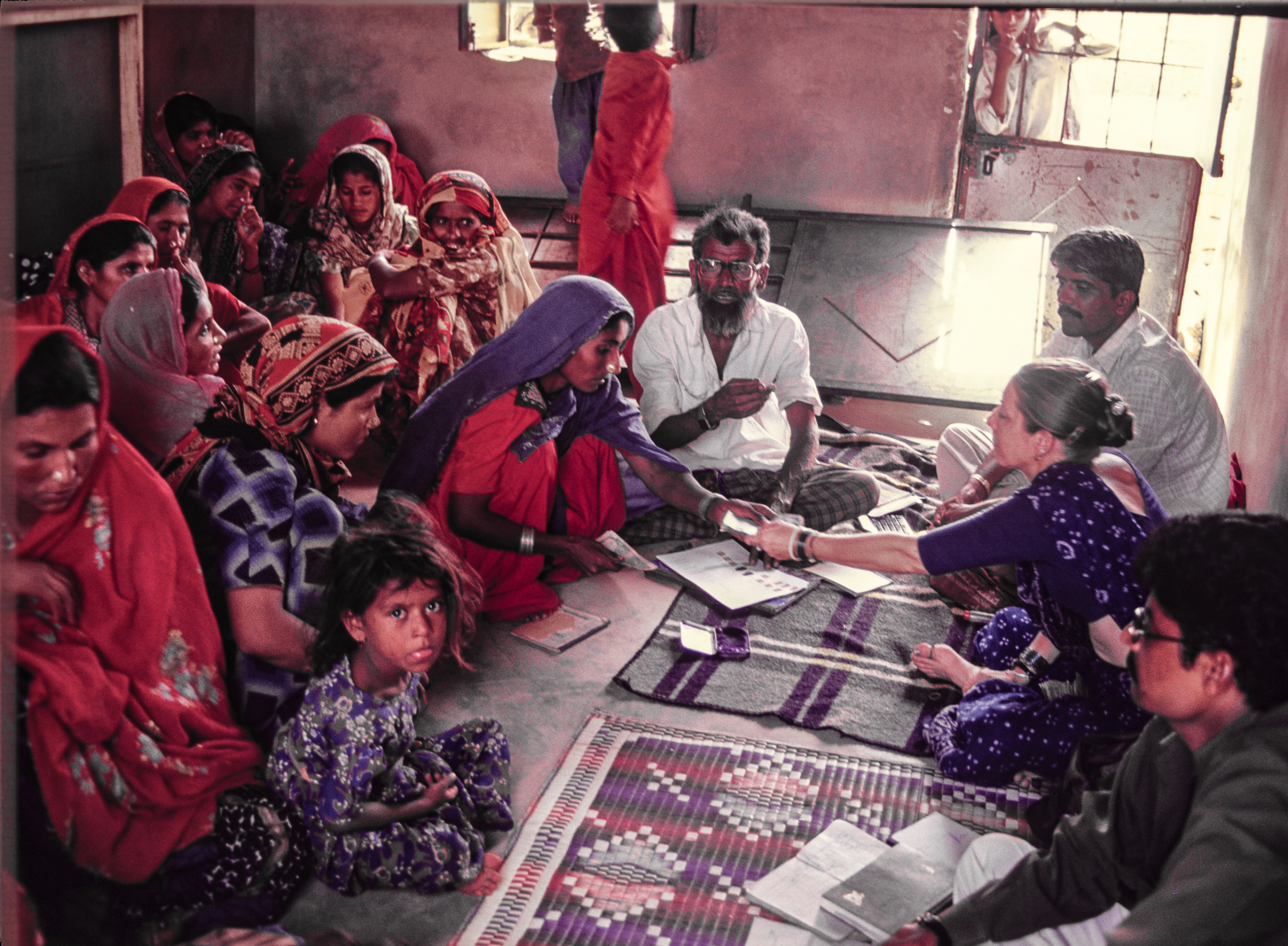Private sector Intermediaries-NGOs, Partnership, Trusteeship
 August 12, 2023
August 12, 2023
Distributing payments in Sumrasar Jatwali, 2001.
After working with Kala Raksha, the trust I co-founded in 1993, I became acutely aware of the limitations of development for artisans in the NGO sector.
As Dr. Ismailbhai Khatri said (last post), the government should provide basic amenities to all. He was not asking for anything specific to artisans. But what should private entities provide? A plethora of NGOs have emerged to offer assistance to artisans beyond the scope of government.
Intermediaries fill a need. Arjo Klamer imagines an ideal Creative Craft Culture, in which there are 3 components: creative artisans, an appreciative market, and intermediaries to connect the two.
The issue is how do private intermediaries understand the need and attempt to fill it? When artisans are imagined as pre-industrial manufacturers, the goal is understood as making hand work fit into an industrial model: artisans need to scale up to make in quantity and make cheaply. Further, many NGOs need their artisan constituency in order to endure. So there is a vested interest in keeping artisans dependent, “helping” in order to maintain a status quo.
From the artisan perspective, a more respectful model could be developed on the concept of partnership, in which parties agree to cooperate to advance their mutual interests and there is some mutuality of rights and obligations. Could artisans and intermediaries join their respective strengths and abilities to form balanced partnerships?
Another intriguing model is Gandhi’s specific concept of trusteeship as a way to address inequalities of ownership and income. Gandhi believed that
everything belongs to God and is for His people. No one could accumulate wealth without the labour and cooperation of poorer sections of society. So when an individual had more than their fair share, they became a trustee of that portion, and were logically and morally bound to share it. Gandhi’s goal was progress that promotes human dignity, rather than mere charity. Today’s Corporate Social Responsibility (CSR) is rooted in this concept of trusteeship; the concept is that companies have a responsibility to the society from which they derive resources.
As always, the question is, how to authentically interpret and implement this ideal?



